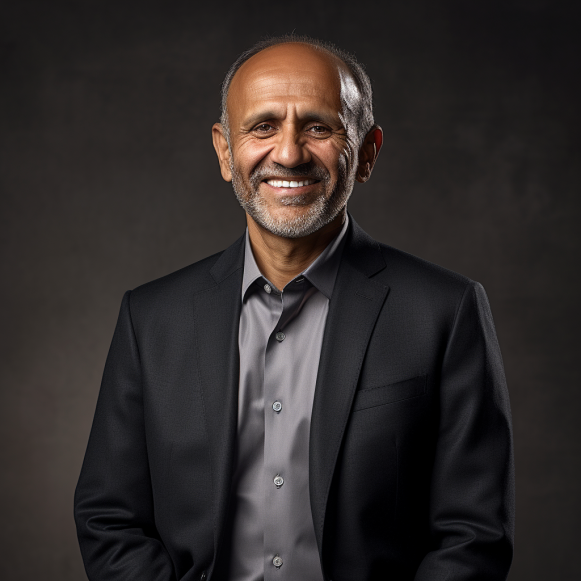The career rise of billionaire Alex Karp, Palantir’s outspoken CEO

Palantir CEO Alex Karp.
Alex Karp, longtime CEO of data mining company Palantir, is taking a victory lap on the heels of the company’s latest blowout earnings.
Palantir, which creates software to manage, analyze, and secure data, recently hit its highest stock price since going public in 2020 following a huge beat on Q3 earnings.
Karp, who has been CEO since 2004, is known as an unusual leader, even by Silicon Valley standards. He pursued a Ph.D. in philosophy before joining the startup and sometimes works from a barn.
Here’s how the 57-year-old Karp got his start, took the helm of the secretive startup, and built it into a multi-billion-dollar company.
Alex Karp grew up in Philadelphia.

Karp has described his parents as hippies.
His parents were a pediatrician and an artist who Karp has described as hippies, saying they often took him to labor rights demonstrations and anti-Reagan protests when he was young. A 2018 Wall Street Journal profile called Karp a “self-described socialist.”
Karp got his bachelor’s degree at Haverford College in Pennsylvania before attending law school at Stanford University.

Karp met Peter Thiel, one of several people with whom he’d later co-found Palantir, at Stanford University, pictured here.
At Stanford, he was classmates with PayPal cofounder and venture capitalist Peter Thiel.
After law school, Karp began working on a Ph.D. in philosophy at Goethe University in Frankfurt, Germany, studying under famed philosopher Jurgen Habermas.

Karp also pursued a Ph.D. in philosophy in Frankfurt, Germany, pictured here.
Karp is fluent in German and speaks French as well.
Around the same time, an inheritance from his grandfather sparked an interest in investing.

Before heading up Palantir, he got into investing on behalf of wealthy clients.
According to Forbes, he quickly became successful at it and created a London-based firm called Caedmon Group, named after his middle name, investing on behalf of high-net-worth clients.
By 2003, Thiel, Karp’s law school classmate, had already founded and sold PayPal to eBay for $1.5 billion.

Palantir was founded by several Stanford and PayPal alums.
He decided to launch Palantir, along with Stanford computer science graduates Joe Lonsdale and Stephen Cohen, plus Nathan Gettings, a PayPal engineer. By 2004, Karp joined as CEO.
Karp is known for being an eccentric leader.

Karp is known for some eccentric behavior.
He often wears brightly colored athletic wear, keeps Tai Chi swords in his offices, and was known to practice martial arts on his Palantir cofounders in the office hallways.
Karp is a fan of fitness and wellness who practices Qigong meditation and keeps vitamins and extra swim goggles stocked in his office.

He’s a fan of Qigong meditation.
He told Forbes that the only time he isn’t thinking about Palantir is “when I’m swimming, practicing Qigong or during sexual activity.”
Despite a net worth of around $5.4 billion by Forbes’ estimates, Karp doesn’t appear to spend lavishly.

Palantir was previously based in Palo Alto, California, but since moved its headquarters to Denver.
Karp has been known to sometimes work out of a barn in New Hampshire. He has never been married and told Forbes that the idea of starting a family gives him “hives.”
Palantir is also pretty secretive. Because of the company’s contracts, many employees have government security clearances and receive five-figure bonuses for choosing to live close to the office, according to the Journal.
Palantir has courted numerous controversies over the years.

Palantir has drawn ire for licensing its tech to law enforcement.
The company has been criticized for licensing its technology to law enforcement, which has used it for practices like predictive policing and tracking cars’ routes using just their license plates.
Palantir has also come under fire for its contracts with US Immigration and Customs Enforcement.

Palantir has also faced controversy for its ICE contracts.
The company provides software that helps the agency gather, store, and search through data on undocumented immigrants. After employees pressed Karp on ending the company’s contracts with ICE, he denied that its technology was being used to separate migrant families.
Karp has responded to criticism of the company’s contracts with the military.

Karp has defended Palantir’s use by military and intelligence agencies.
“You may not agree with that and, bless you, don’t work here,” Karp said in 2023 of tech workers who have qualms about the company’s data mining.
“We don’t like people who are coming in and saying, we want to kill terrorists and just without data protection,” he added. “Bless your soul if you want to distribute carcinogens with your great intellect in the form of consumer internet.”
The company went public in 2020.

Palantir began trading on the New York Stock Exchange in September 2020.
It went public via a direct listing on the New York Stock Exchange in September 2020 at an estimated $20 billion valuation.
Following Palantir’s Q3 2024 earnings report, Karp boasted about the company’s performance and defended himself from critics.

Palantir’s US revenue increased 44% year-over-year, it said in Q3 2024 earnings.
“This is a US-driven AI revolution that has taken full hold,” he said in an earnings release. “The world will be divided between AI haves and have-nots. At Palantir, we plan to power the winners.”
During the subsequent earnings call, he said, “Given how strong our results are, I almost feel like we should just go home.”
Responding to criticisms of his leadership, he said, “Instead of going into every meeting saying, ‘Oh, yes, Palantir is great, but their fearless leader is batshit crazy, and he might go off to his commune in New Hampshire,’ whatever thing we’re saying, it’s now like, yes, the products are best, and we have great products.”
Palantir’s stock was up more than 13% in after-hours trading Monday following the earnings results, and its US revenue grew 44% year-over-year.






